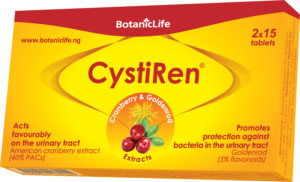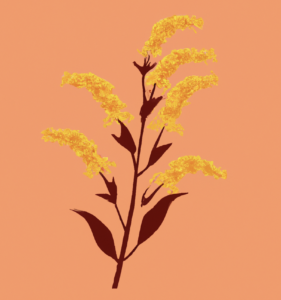⏰ Last Update: 21.06.2023
Cystitis is a common condition that affects the urinary system. It is an inflammation of the bladder’s lining and can cause a range of uncomfortable symptoms. While it can affect both men and women, it is more common in women. In this article, we’ll explore the different types of cystitis, the causes and risk factors, the symptoms, and the diagnosis and treatment options available.

Types of Cystitis
There are different types of cystitis, each with their own causes and symptoms. These include:
Acute cystitis – this is the most common form of cystitis, caused by bacteria such as Escherichia coli. It causes an inflammatory response in the bladder, leading to a range of symptoms such as frequent urination, pain or burning during urination, and cloudy urine.
Chronic cystitis – this type of cystitis is often caused by an unresolved infection that has not been completely cured. The infection can lie dormant and flare up with a decrease in immunity, stress or overload.
Non-infectious cystitis – this can occur as a result of trauma, ingestion of caustic chemicals, or aggressive drug treatment that alters both the chemical and biological balance in the body.
Radiation cystitis – this is a special type of non-infectious cystitis that occurs immediately after radiation therapy or chemotherapy.
Causes and Risk Factors
Cystitis is more common in women than in men. The anatomy of the female urethra makes it easier for bacteria to enter the bladder, leading to infection.
There are many factors that can contribute to the development of cystitis. Some of the most common causes and risk factors include:
Poor hygiene – inadequate cleaning of the genital area can increase the risk of cystitis as it allows bacteria to enter the bladder.
Reduced immune defense – a weakened immune system can make it harder for the body to fight off invading bacteria.
Gastrointestinal problems – constipation and diarrhea can both increase the risk of cystitis by allowing bacteria to enter the bladder.
Pregnancy – hormonal changes during pregnancy can affect the urinary system, while an enlarged uterus can press on the bladder and urinary tract, creating favorable conditions for the occurrence of uroinfections.
Insufficient water intake – not drinking enough water can reduce the frequency of urination and allow bacteria to multiply in the bladder.
Use of catheters – catheters can introduce bacteria into the bladder and increase the risk of cystitis.
Congenital malformation of the urinary system – individuals born with a malformation of the urinary system may be at a higher risk of developing cystitis.
Enlarged prostate – men with an enlarged prostate are at increased risk of cystitis due to the physical proximity of the prostate to the bladder.
Honeymoon cystitis – this is a type of cystitis associated with increased frequency of sexual activity. While cystitis is generally not a sexually transmitted disease, sexual activity can cause bacteria to enter the bladder, particularly if the couple alternates between anal and vaginal sex.
Allergies and sensitivities – certain foods and drinks, such as coffee, tea, soda, alcohol, citrus juice, hot peppers, and spicy foods, can increase the risk of cystitis. Contact dermatitis from deodorants or other vaginal fragrances can also cause irritation and increase the risk of cystitis.
Symptoms of Cystitis
The symptoms of cystitis can be uncomfortable and debilitating. They may include:
- Frequent urges to urinate
- Pain or burning during urination
- Strong, unpleasant-smelling urine
- Cloudy urine
- Pain above the pubic bone
- Pain in the lower abdomen
- Blood in the urine
Symptoms of Cystitis can be Hidden
Cystitis is a urinary tract infection that affects the bladder and can cause discomfort and pain in the lower abdomen and pelvis. However, in older people, urinary tract infection symptoms may be similar to the symptoms of incontinence, leading to delayed treatment and deepening of the symptoms.
Complications of Untreated Cystitis
Cystitis can lead to several complications if left untreated. Chronic cystitis is the most common complication, followed by fibrosis and reduction of the bladder’s volume.
Bladder wall perforation and pyelonephritis are rare but serious complications that require immediate medical attention.
Diagnosing Cystitis
There are various diagnostic tests that may be performed to confirm the diagnosis of cystitis, including a urine test with a chemical dipstick and microscopic examination, an ultrasound examination, cystoscopy, and gynecological examination. However, most of the time it can be just diagnosed by the symptoms.
Treatment
Cystitis is commonly treated with antibiotics, but this treatment comes with its own risks. Antibiotics can weaken the immune system and disrupt both the gastrointestinal and excretory microflora, potentially leading to a recurrence of cystitis. Additionally, antibiotic resistance can occur, where bacteria adapt and become resistant to the same antibiotic. The improper use of antibiotics can accelerate the emergence and spread of resistant bacteria, creating a vicious cycle of using more powerful and potentially dangerous antibiotics.
Antibiotic treatment is also undesirable during pregnancy. Therefore, natural methods are often preferred for the treatment of cystitis. Herbal medicine and other alternative therapies provide a gentle and potentially side-effect-free option for long-term treatment and improved quality of life.
CystiRen is a natural product made with a standardized extract of American cranberry and Goldenrod, both known for their beneficial effects on cystitis. American cranberry contains unique proanthocyanidins that prevent bacteria from adhering to the bladder wall, while Goldenrod acts as a diuretic, anti-inflammatory, and supports the immune system. The daily dose of CystiRen contains twice the minimum effective dose of PACs and is suitable for both acute and chronic cases. Learn more about CystiRen at https://botaniclife.ng/product/cystiren/
Other natural diuretics such as birch leaves, dandelion, and gooseberry are also helpful.
Conclusion
Cystitis is a common and often debilitating condition that affects a significant portion of the population, particularly women. It can have a range of causes, symptoms, and complications, and can be difficult to treat, especially with antibiotics that come with their own risks. However, natural products like CystiRen offer a gentle and effective alternative to traditional treatments. With its unique blend of American cranberry and Goldenrod, CystiRen has been shown to be effective in preventing bacteria from adhering to the bladder wall, reducing inflammation, and supporting the immune system. By taking a natural approach to cystitis, individuals can improve their quality of life and avoid the risks associated with antibiotics. Visit https://botaniclife.ng/product/cystiren/ to learn more about CystiRen.
Thanks for the help of:
Prof. Dr. Boris Bogov, head of the nephrology clinic at Aleksandrovsk Hospital
Dr. Dimitar Pashkulev, phytotherapist and nutritionist




